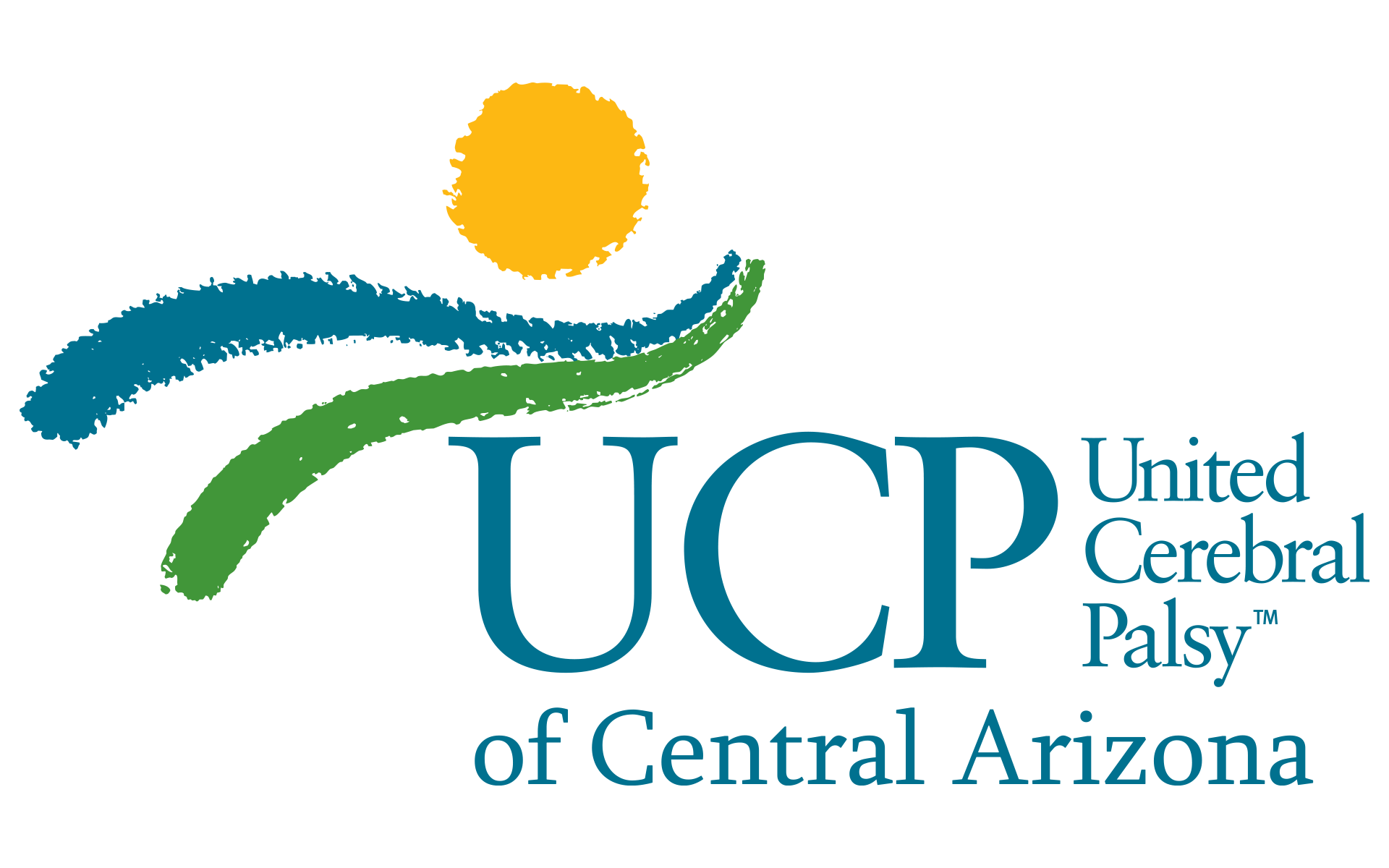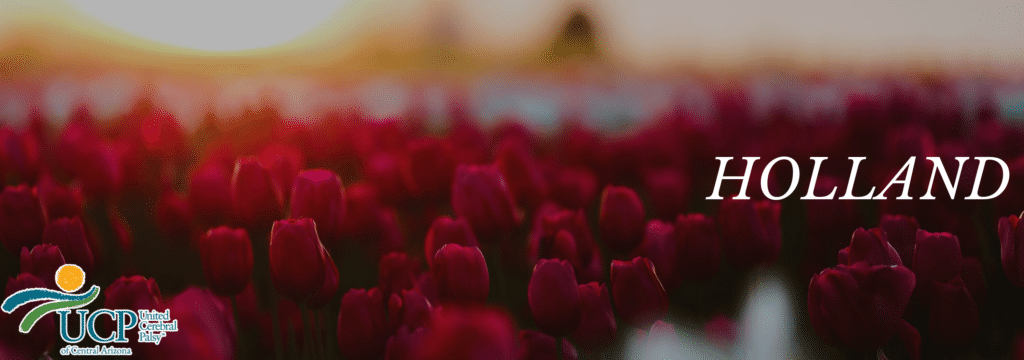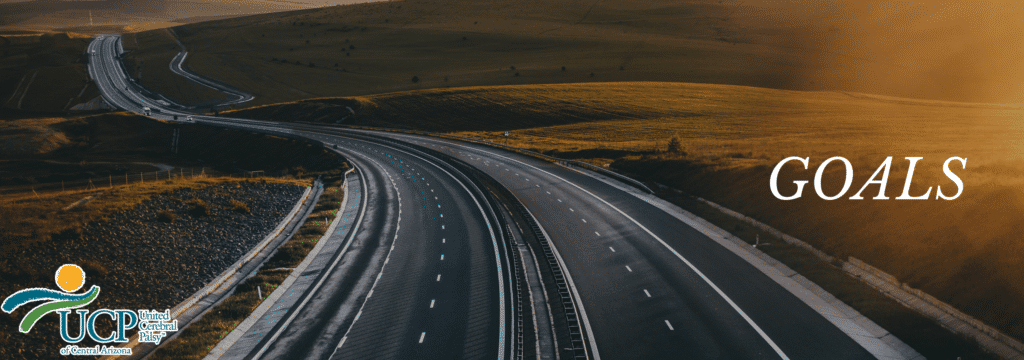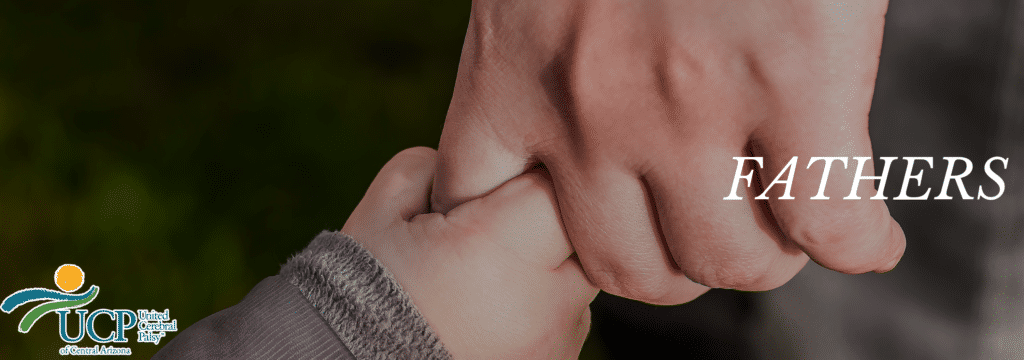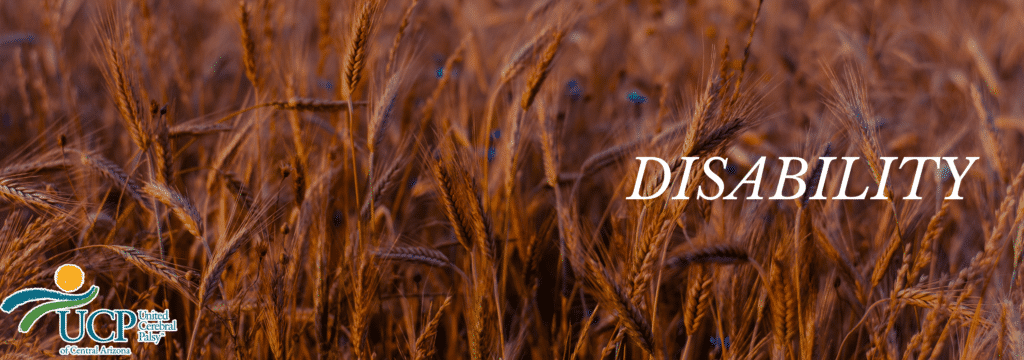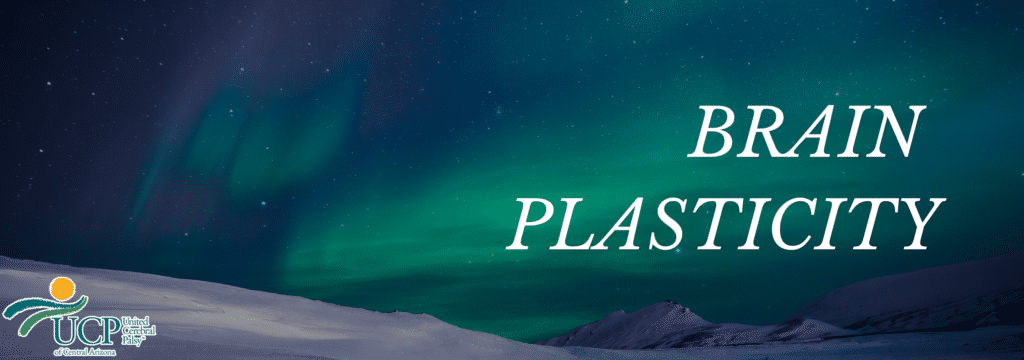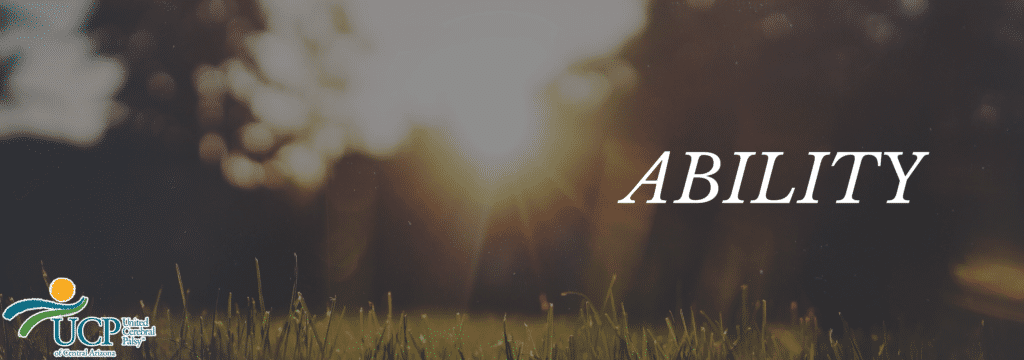H for Holland
There’s an old parable in the world of disabilities, thought to be written by a parent. Imagine this:
You’ve dreamt your whole life of visiting Italy. From the time you were a child, you spent hours and hours watching classic films set on sun-soaked beaches and old cobbled streets: Gregory Peck and Audrey Hepburn zipping through Rome on a Vespa; Michael Caine charming his way to riches; the melancholy loss of the Cinema Paradiso fading away.
The history. The people. The food. The landscape. You were in love before you even arrived. You just couldn’t wait to get there.
And finally, you’re old enough. You book your ticket for a month’s long tour of the country, and immediately you devour all that you can: you buy guidebooks and maps. Your stomach clenches in anticipation every time you daydream about the sound of the wind through the cracks in the Coliseum walls, the cold breeze in your face aboard a gondola, the sweet bite of limoncello on your tongue. You practice your Italian, you plan your itinerary. And even with months of planning and preparation, it still doesn’t feel like enough, surely you’ve missed something important, surely you’re not ready yet.
But it’s okay. You’re going to Italy, just like you’ve always wanted. You know enough, and that which you don’t know you can figure out along the way. There are nerves on the way to the airport, excitement and anxiousness. It’s really happening at last. You board the plane, snuggle into your window seat, and close your eyes.
Hours later, you set down your dog-eared guidebook as the plane’s wheels bounce along the tarmac. The pilot’s voice crackles through the speakers: “Ladies and gentlemen, welcome to Holland.”
Holland?! What do you mean Holland?! I’m supposed to be in Italy! Italy is what I signed up for, Italy is what I wanted! My whole life I’ve dreamt of going to Italy! This is unfair, take me to Italy, now!
You demand answers, but no one can give you any. Who knows how you ended up in Holland; did you book the wrong flight? Did the airline make a mistake? No one knows, and it doesn’t matter. There will be no Italy for you. You’ve landed in Holland, and in Holland you will stay.
At first, you’re shocked. You did not prepare for Holland. You know nothing about Holland. Everything you learned about Italy is now useless. So you do the only thing you know how to do: in a daze, you go buy more guidebooks and learn about Holland. You learn a whole new language and meet a group of people you never would have met otherwise. After your initial discombobulation, you find Holland is actually a beautiful country in its own right.
As the shock wears off, you realize you realize that Holland has its own unique beauty. It’s different than Italy, but it is beautiful all the same. The pace of life is a little slower, but there is still much to do. The pace of life is a little slower, a little more laid-back but there is still much to do. It’s not so flashy, so brash as Italy. After you’ve acclimated, learned a bit of the language, conversed with the lovely Dutch people, you begin to catch your breath. You begin to open your eyes and look around.
Holland has windmills.
Holland has Rembrandts.
Holland has tulips.
And like Venice, Amsterdam even has canals. Perhaps things are not so different after all.
But when you check your phone, you see everyone else is busy on their own Italian vacations. Their photos are full of fun activities. of memories they’ll cherish forever. And for every photo you see, there is a sting deep inside you that will never leave. That is where I was supposed to go, that was my dream. Everything I planned was for Italy.
But spend your vacation wishing that you were in Italy, and you will never appreciate the tulips, of which the very best in the world can be found only in Holland.
No one plans on their child having a disability, but if it happens, find the tulips and you will find joy.
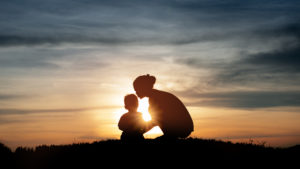
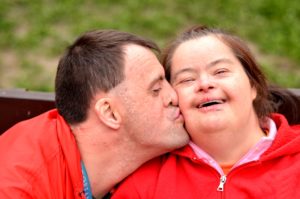
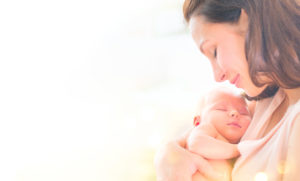
G for Goals
Every parent has goals for their child, goals that grow alongside them – from anxiously waiting for them to take their first steps, to waiting for college admissions letters in the mail. Every family has their own goals; but more important than any single, measurable goal is that we continue to work towards them, whatever they may be, however long they may take. Our family knows this better than most.
Our daughter was born with a rare, neurodevelopmental disorder called Pitt Hopkins Syndrome (PTHS), which was caused immediately at conception. It was not inherited or caused by anything I did or did not do during pregnancy but happened spontaneously, by chance, and it could have happened to anyone. Alexandra is missing just a tiny piece of genetic material on her 18th chromosome. Unfortunately, that piece includes a very important gene called TCF4, which oversees quite a lot in the human body. There are less than 1000 people in the world that have a mutation of the TCF4 gene, approximately 600 in the United States, and only seven in Arizona. Alexandra suffers from developmental delay, food and environmental allergies, cortical vision impairment, myopia, and gastrointestinal issues. Pitt Hopkins Syndrome has also stolen her voice and she is unable to communicate with words like you and I.
Also, many children with PTHS never learn to walk. She works hard every day with us at home and weekly at UCP of Central Arizona with physical therapy, occupational therapy, and speech therapy to help train her body to take steps, balance itself, to pick up objects, to access her voice through augmentative and alternative communication, and so much more. Additionally, many of her Pitt brothers and sisters around the world suffer from hyperventilation, apnea, and seizures, all caused by PTHS. Even though the cause of PTHS is known, there are currently no pharmaceutical treatments available for this disorder. There is no cure.
Our sweet child must tackle overwhelming odds to make it through every day. Her body must learn to regulate from a sensory processing standpoint, she must adapt to noises and understand different movements around her. At night when she finally falls asleep, her brain can finally rest… as ours do too. Sometimes.
Often, it is at night when my mind wanders the most. Or when I am scrolling through social media feeds and I land on a video or photo of a peer similar in age to Alexandra. I pause in awe and wonderment, as I see the neurotypical child tackle life with such ease. That child—and his parents—have no idea how much it requires to learn to take those steps, to walk, to run, or to simply put food in their mouth. You see, most children are born with innate skills and reflexes that when called upon, their brain immediately executes. With Alexandra, she was not born with those abilities; instead, she must learn every single one of them.
We are so thankful for UCP and their incredible therapists for their dedication in helping her work hard, so that one day, she will crush her goals. Alexandra has many goals and the list continues to grow. Our family decided relatively early on in this journey to not call them milestones, but instead, “inchstones,” so that we can celebrate all the tiny joys along the way. Milestones and those big goals like self-feeding, walking, even talking, seem so far away some days. But, when celebrating inchstones, we are beyond thrilled when she finally learned to pick up that toy or learned to stand along our coffee table.
This week was a big week for us. Really big. I am even tearing up as I write this. We have waited four years and seven months to see our baby girl sit up on her own. She did it just a few days ago. She sat up in her bed on her own, unprompted, on her own accord, on her own will. My husband got it on video and I keep replaying it as it is just the most incredible sight I have seen. I am praising the universe for showing us a glimmer of what is to come.
She finally smashed this goal, and on to the next!
Author: Nicole Anderson, UCP Board Member & Ambassador, Guest Blogger
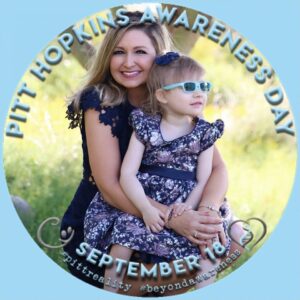
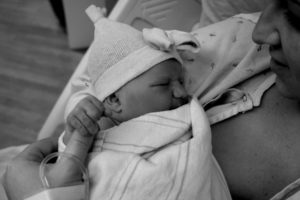
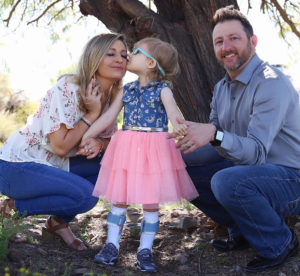
F for Fathers
Sunday is the day for fathers, but everyday our staff gets to see the love a father has for his child in action, the innate desire to see them succeed, to see them happy. Thinking about Father’s Day just around the corner, I’m reminded of a touching meeting I was a part of not too long ago…
The manager of our early intervention program had been trying to find time to take the program’s administrative staff out for a lunch meeting in order to celebrate all the team’s accomplishments this year. Since good things deserve to be celebrated, and I was proud of the work they’d done this year, I volunteered to lead the meeting.
As anyone who has participated in a large meeting will know, these things can be difficult to get started. Suffice to say I was stressed: the meeting started five minutes late, there were frustrating glitches in the paperwork, the meeting’s agenda was full to the brim, and not to mention that we expected several families calling in to participate in reviewing their child’s quarterly progress. The team knew it would be a long meeting and that we likely wouldn’t have a chance to connect on a personal level because of the work that needed to be done.
However, we quickly realized it wasn’t going to be a meeting of drudgery; the dads that called in on the conference line that day made sure of that. Their excitement and palpable desire to see their child receive the best care possible completely changed the atmosphere of that simple meeting.
Every father that called in to participate in their child’s progress review were all very different but equally passionate about their children in their own way. Their energy was infectious, seeping into everyone that listened to them speak. In a day and age where people may worry about the modern family unit, this made my heart smile.
The first father who called was loaded with perceptive questions about how best he can help his son. He listened intently as the team helped him to understand what he could do to encourage his son’s speech. Although he was on the phone, the way his voice radiated his desire to help soon filled the room. The second father didn’t have as many questions and even chuckled while admitting that he had called in only because he worried that he missed something. But as he described his son, it was clear he had not missed anything – I was amazed at how many details about his child’s development he was aware of. The third father had a lot of questions, but had only a few worries about his child and was open to suggestions that the staff gave when concerns arose about the shape of his baby’s head. He gathered the contact information for the services he would need, and it was clear he intended to start making calls as soon as he hung up the phone.
Watching our staff’s amazing team work seamlessly together to respond to these very different fathers, I felt pride for the excellent care that UCP gives to each family based on their own needs. And although the team didn’t get time to share at the end of that meeting, we felt infinitely more connected by our shared mission of serving the families and children that come to us in early intervention. UCP will always be where the lives of fathers and their children are changed, and our teams are honored to witness it every day.
To all the amazing dads out there: Thank you, and Happy Father’s Day!
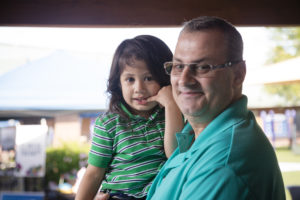
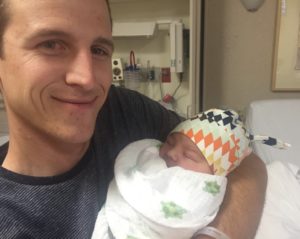
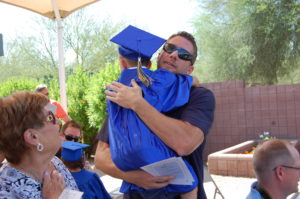
To all the amazing dads out there: Thank you, and Happy Father’s Day!
E for Eating
E is for Eating: Helping our “Learning Eaters”
Until I became a feeding therapist, eating was something I always took for granted. I always liked to eat. As a matter of fact, I consider myself somewhat of a foodie. Sure, I had some of those times as a child when I had to sit at the table until I finished what was on my plate. I think the record was a four-hour standoff because I hated the beef stew my mom made. Almost everyone around me liked to eat too, except for my cousin who basically only ate hamburgers until he was about 18 years old. But he was a thriving soccer player so no one worried about it.
As I began my work as a feeding therapist, I started to meet amazing infants and children who struggled with not just with eating, but with feeding disorders. They were given diagnoses such as ”failure to thrive” and “feeding tube dependent”. I began to see that eating is not something that just comes naturally; it is a learned behavior. We learn to like or dislike eating based on our experiences with food. If eating is not enjoyable or is painful for an infant or small child, then food refusal is more likely to develop. For example, if an infant experiences significant vomiting or digestive discomfort after eating, he or she can soon learn that eating isn’t fun and develop a negative association with eating. The foods that a child learns to trust can be very limited. While there are several medical diagnoses associated with feeding struggles, some of the most common include prematurity, reflux, cerebral palsy, congenital heart disease, down syndrome, food allergies/intolerances, and autism spectrum disorder.
So how can we support our children with picky eating or feeding disorders? We can start by looking at how we refer to them. Labels are powerful. The “picky eater” topic is prevalent these days. I just searched “picky eater books” on Amazon and almost 40 different books were available on the first three pages of the search alone. Earlier this month I facilitated a feeding therapy course taught by Melanie Potock, M.A., CCC-SLP, a pediatric feeding expert and author. She discussed how parents often describe children as “she’s our math whiz” or “he’s our athlete”, and children respond by developing in those directions. When a child hears that he or she is the “picky eater” or “won’t eat anything”, a child will tend to move further toward that label. Eating is a learned behavior. In Melanie’s practice, she refers to children with feeding struggles as “learning eaters” and encourages children to enjoy foods again by exploring foods and offering positive reinforcement. Children with feeding struggles need to learn to enjoy eating again.
How can we support our “learning eaters”?
- Repeated exposure to new foods. Often we present a new food to a child 1-2 times and stop when that food is rejected. A child actually needs to be exposed to a food 7-15 times before becoming open to trying it.
- Offer foods with no pressure to eat. Avoid saying “eat it” or “take a bite”, as this brings more pressure to the situation. Allow the child to explore the food on his/her own.
- Model eating at mealtimes. Offer a preferred food and 1-2 foods that the rest of the family is eating on the child’s plate. Allow your child to watch you eat and enjoy the food without commentary from family members.
- Offer positive praise when a child tries a new food, even if it is touching or taking a small bite of the food only. Avoid scolding a child for not trying a food or asking them to stay at the table until they’ve finished the non-preferred food. These strategies will not teach a child to enjoy those foods (I still don’t like that beef stew that caused the four-hour table standoff).
- Offer opportunities for your learning eater to eat with his/her peers, such as play dates, school snack times, or mealtimes with extended family. Children are amazingly observant and often are more open to trying new foods when watching other children do so.
In closing, mealtimes with a learning eater are often stressful for the entire family. If your child’s feeding struggles are impacting the family or if you are concerned about your child’s health, consider talking with your pediatrician and obtain a referral for a feeding evaluation with a trained feeding therapist.
Written by: Marnie Madden, M.S., CCC-SLP
Lead Therapist, Clinical Speech-Language Pathology
D for Disability
A disability is defined as “a physical or mental impairment that substantially limits one or more major life activities of such individual.”
While that defines a disability, a disability does not define a person; it is only an attribute, one that impairs some life activity. Like any other attribute, a disability is only an aspect of the whole person. A child is not a Downs girl – she is a little girl with Down Syndrome. This example of the “People First Language” movement gets this right by putting the person before the disability. It reminds us that who they are as a person comes first, their disability only an adjective that describes one part of them.
A disability does make a person different from others, just as a woman who is taller than six feet is also different from most women; her unique attributes can make finding clothes problematic. In that same way, a little girl with Down Syndrome is different from other little girls. Her fingers are shorter and not as strong, so buttoning her shirt may be more difficult for her. She is more likely to acquire a thyroid disease, and when she grows up, her job opportunities may be limited due to intellectual impairment. But her smile and her personality, with all her likes and dislikes, will be uniquely her own. The people who love her will come to know all her attributes that go far beyond her disability, like a love for practical jokes.
Occasionally, a UCP staff member will hear that “it must be so sad to work with people with disabilities.” This could not be farther from the truth. We come to know the person first, with their disability becoming just another trait that makes them unique. The truth is that the children and adults we serve at UCP help each of us come face to face with our own personal disabilities; as we help a little girl overcome the obstacles that come with Down Syndrome, she helps us overcome our own obstacles. She erases the blindness in our hearts that refuses to see the joy in small accomplishments. She shows us how to take our first steps in any long journey of perseverance, where things don’t come easy. She teaches us to reach out with love to someone different than ourselves. We learn that our disability is not who we are, but a facet of our whole person. The UCP staff has the adults and children that we serve to thank for this deeper understanding of ourselves.
To respond to the needs of the community, UCP has a commitment to help people with disabilities no matter where they are in life. We are honored to be a part of their journey as they show us new things and teach us new lessons, and allow us to grow alongside them.
To learn more about the services UCP offers to people of all disabilities, ages and from all walks of life, visit ucpofcentralaz.org.
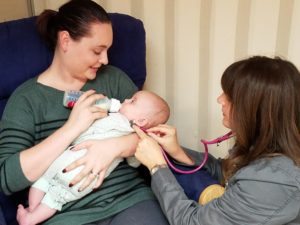
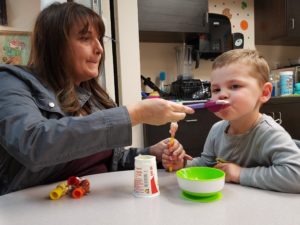
Marnie providing specialized feeding therapy to children of UCP.
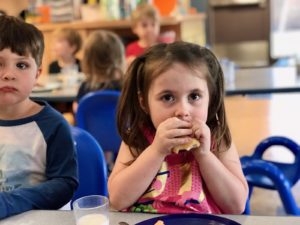
C for Champions
It may not be obvious at first glance, but Champions are everywhere at UCP. Champions aren’t always somebody who has received a medal on a podium; in fact, some of our Champions may never even know what it feels like to receive a round of applause. Champions aren’t always somebody who has won a title; their name may never be recognized among strangers. Some of our Champions are the quietest of victors, those that have accomplished something momentous through nothing but their own sheer determination and hard work. Their only applause is the steady rhythm of placing one foot in front of the other – always moving forward, always working harder.
Champions at UCP are the parents who drive 30 miles to their child’s physical therapy appointment to be able to see their 3-year-old take her first steps. Champions are the therapists that help a child overcome obstacles by using their passion and creativity to adapt a family’s laundry basket to help a toddler sit and play in the tub. Sometimes Champions are the adults with communication barriers who have the courage to reach out to others by kindly greeting each person that enters through the door of the UCP Café Without Limits.
Yes, Champions really are everywhere at UCP, even on our Board of Directors. Champions like Dr. Michael Kruer, who is quietly driven by a passion for children and their families to overcome barriers. To his ears, the greatest round of applause is not in his honor, but the gleeful clapping of a child when she achieves a new motor skill. His name is recognized among parents and professional peers alike, for Dr. Kruer is a Champion among Champions.
Join us on April 13, 2019, to celebrate Dr. Kruer life’s work at UCP’s 8th annual fundraiser – Inchstones: A Celebration of Champions. Not only will we be honoring Dr. Kruer’s groundbreaking research into movement disorders and rare diseases, which brings hope to families across the world, but we’ll also be celebrating the corporate and community leaders, philanthropists, disability advocates, therapists, families, and supporters of UCP of Central Arizona that make our work possible. Most importantly, it’s our chance to give a round of applause to the Champions who deserve it, and yet so rarely receive it.
We are thrilled to share the miracles that we see happen every day with our community, all made possible by the support of our corporate partners and the many caring individuals who champion our cause day-in and day-out. Help us celebrate the journey of our families; witness our children reaching their full potential and imagine what we can do to create lives without limits. Click here to find out how you can join in this celebration of Champions.
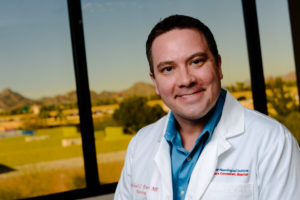
Dr. Michael C. Kruer, Recipient of the 2019 Laura Dozer Award
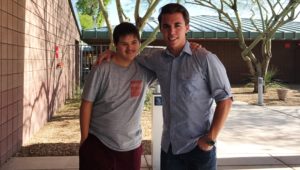
Champions at UCP
B for Brain Plasticity
Bing. Bang.
Zip. Zap.
It’s almost as though you can hear the sounds of the electrical buzz as a baby’s neurons fire off with delight when they first understand that shaking a rattle makes a fun noise. His brain is forging new connections every moment.
Brain plasticity is the brain’s ability to reorganize itself by forming new neural pathways and connections. This process, also known as neuroplasticity, takes place throughout life, with the greatest activity taking place prior to the age of five. Brain plasticity makes a baby’s brain highly responsive to new experiences or to changes in their environment, shaping and developing their brain in new ways. For children with an injury or have been born with a brain abnormality, brain plasticity allows nerve cells in the brain to compensate by ‘rewiring’ themselves, allowing the brain to literally outsmart itself.
This incredible process has huge implications. For example, studies have shown that infants who experience a stroke before birth can relocate their center for speech function to the same area on the other side of the brain, allowing them to develop normal speech and language.
It’s because of brain plasticity that early intervention is so important!
For children who are experiencing a delay or disability, help in these early years is critical. Learning experiences during this period of life affects an individual just as much, if not more, than any experience that takes place between kindergarten and college. Most states, including Arizona, have an early intervention program in place to take advantage of this unique stage of the brain’s development.
United Cerebral Palsy of Central Arizona has been committed to early intervention from the beginning and has participated in the Arizona Early Intervention program since its inception 14 years ago. We have committed large teams of professionals to help young children from birth to three years of age overcome delays and disabilities by coaching families on how to provide their child with the opportunities that support healthy brain development. UCP early intervention teams (consisting of an occupational therapist, physical therapist, speech and language pathologist, developmental specialist, and support coordinators) travel all over northern and central Maricopa County to get these children the help they need.
On any given day, a team might be up in New River helping a parent learn ways to encourage a child to use words instead of crying for what she wants; meanwhile another team is in Fort McDowell working with a child with cerebral palsy to take their first steps. This meaningful work in the community may be costly for our agency, but those of us at UCP who see the incredible results of the early intervention program cannot offer enough thanks to our incredibly generous donors who make it possible.
The Minnesota Child Care Association put it best: “We can invest now in our children and families and enjoy long-term savings, with a nation of healthy, achieving children and more stable families. Or, we can fail to make the investment and pay the price…”
Brain plasticity provides a window of opportunity for children to be successful in their community. Children can grow up without having to experience the unnecessary limitations of a delay or disability. Best of all, brain plasticity allows childhood dreams to come true. If a young girl dreams of being a news journalist, a speech delay doesn’t have to hold her back. If a boy wants to grow up to be a concert pianist, clumsiness won’t stop him. Brain plasticity says change is possible. Early intervention says to a child “Go for it.”

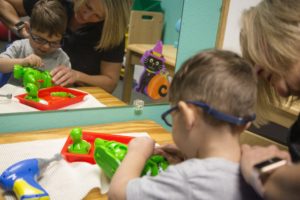
A for Ability
Welcome to the ABC’s of UCP! UCP of Central Arizona is such a multi-faceted organization that it seems impossible to convey all the wonderful work that our teams of providers and members do every day. So, check back regularly as we try to capture everything we do, one letter at a time!
There’s no better place to start than at the beginning, so of course we begin with Ability, which is the goal of everything we do here at UCP.
We think of ability in simple terms: possessing the means or skills to do a certain something, anything: pick up a cup, say ‘I love you’, run a mile. Ability has a fast in varying range between individuals and within individuals, making each person’s journey different. Our mission at UCP is to ensure that every one of our members has the opportunity to do the things they want to do, whatever that may be, regardless of what level of ability they are starting with.
Which brings us to disability; a word that is a bit of a misnomer. Our members with disabilities are not dis-abled but rather differently abled. One child may be working hard to land a jump on the ice ring while another of the same age struggles to take a step. Both must work hard and both will need help. What matters is how hard you’re willing to work to get where they want to be. At UCP, we see our children and adults pushing themselves to test the limits of their abilities, and in doing so, push themselves farther and learn to do more. The journey can be long.
For Zach, it was a long journey. When he came to UCP at five years of age, his mother was seeking a new occupational therapist because he “hated” therapies and was crying during sessions. Zach had cerebral palsy with severe motor planning issues. He was also smart and he knew everything about Star Wars. The best thing about Zach is that he had a great sense of humor. He knew when he couldn’t plan the movements of simple tasks and quickly became frustrated, wanting to quit. Humor along with his great imagination fueled by Star Wars was the key to Zach’s willingness to participate in therapies. His therapist became the master Jedi and the therapy clinic was a starship. Learning basic skills like dressing and tying shoes were part of what he learned as a Padawan who was a Jedi in Training. Zach still became easily defeated because he knew he never would be able to play soccer well like his friends. Even with adaptions, he struggled at school because he didn’t have the motor ability to form the numbers when doing timed tests. Adaptive equipment was necessary for things that his friends did easily. One day when Zach was nine years old, he seemed reflective and didn’t want to talk about Star Wars. As he walked on the sidewalk to the therapy clinic from the parent waiting room, he seemed to be reflecting on his journey with his occupational therapist but she wasn’t certain. “You know this is a long path that we are walking. Sometimes it’s kind of hard to walk it but I’m able to do it.” “Yes Zach it has been a long path but you are doing it,” his therapist responded.
And that is the crux of our mission at UCP. No one should be deprived of that immense satisfaction, that deeply-rooted joy of achieving a goal. That joy is plain to see on the face of our children and adults there is no call when we see them run and write and paint, cook and converse and laugh, when they truly experience all that their body is capable of. And nothing brings more joy to those of us lucky enough to be a part of their journey.
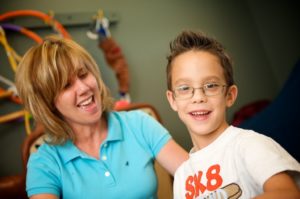
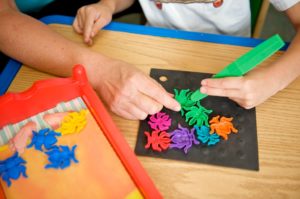
THE SEASON OF GIVING GRATITUDE

A day doesn’t go by at UCP that someone doesn’t thank us for what we do – now, it’s our turn to say thank you to those who make it possible…
When the calendar flips to December, it means the Holidays are upon us at last, and with it comes the time for family and friends, for giving and gratitude. So in that spirit, we wanted to take the time to express our thanks to the corporations, foundations and individuals who give us the greatest gift of all – the resources to do what we love, which in turn helps our members with disabilities live a life without limits.
Our Early Intervention program provides something priceless: vital parental coaching and therapies to help infants and toddlers achieve developmental milestones. Through our partnership with the Arizona Early Intervention Program (AzEIP), our trained therapists and developmental specialists can directly assess the needs of young children in northern Maricopa County to identify developmental delays as early as possible (these issues can be addressed with greater success the earlier they are detected). We’re beyond thankful for the community support we receive, as are the more than 2,000 new parents that have been able to get their child the assessments and therapies they need.
The Early Learning Center is designed for children with and without developmental delays, and it’s this environment that fosters the empathy and acceptance that leads to one of life’s greatest gifts – lifelong friendships. As one of the few 5-Star Quality First rated Early Learning Centers in the state, the children enrolled in our ELC receive a tremendous advantage in early childhood education. For that, we also want to thank our incredible staff who dedicate each day to making a difference.
UCP is fortunate to have two locations for their therapy clinics. The Laura Dozer Therapy Clinic and the UCP Downtown Therapy Clinic offer physical, occupational, speech and language therapies customized to fit children’s needs and goals. Our clinics provide specialized services in the areas of assistive technology, feeding, and intervention for sensory processing disorders. We cannot properly express our gratitude to Circle K, who in 2016 gifted us the building that would become the Downtown Therapy Clinic. These facilities create new opportunities to help families in need, and our appreciation is without measure.
In addition to helping children with disabilities, UCP also cares for adults with a wide array of disabilities at the Day Treatment and Training for Adults program. Our amazing direct support professionals spend their days with adult members, helping them in each and every area that contributes to a fulfilling and independent life; from exercising and socializing all the way to doing chores and creating art, it takes only a few minutes watching our members and staff interact to see how grateful they are to have each other. For them, every single day is a gift of opportunity and growth.
The Home and Community Based Services Program offers people with disabilities of all ages ongoing care. This is provided in a variety of ways through one-on-one respite, habilitation, or attendant care. These services aid in teaching, improving the activities of daily living, and also give many remarkable parents and loved ones a bit of relief from ongoing care. This is a priceless gift for which they are extremely appreciative, and we are honored to provide.
UCP has so many wonderful sponsors and donors we wish to thank. However, no list would be complete without offering our ongoing and sincere gratitude for the extreme generosity of Circle K and its customers. From the store collections of spare change doantions totaling $3.5 million, to the annual golf tournament, which contributed $880,000 last year, the annual revenue received from our valued partner is the backbone of many of our programs.
Above all, it is the opportunity to do what we love to do, day in and day out, that fills us our hearts with an unspeakable level of appreciation. To be a part of these families, to watch our friends learn, grow, and reach their full potential, is an amazing present that we receive every day of the year. To be a part of their journey, to be a part of our community, is what UCP of Central Arizona is all about. So to our members and families, and to our many magnanimous donors, thank you.
Happy Holidays!
UCP OF CENTRAL AZ- OVERCOMING OBSTACLES, A NEW ERA…PART 2
With the milestone changes in federal and state laws, advances in medicine, and the passing of time, the work of UCP of Central Arizona gained recognition. As more and more families became clients, the love and care offered to their loved ones made real to these families what the founders of UCP knew when they founded the organization. These new families may have been separated by years in time from those who started UCP, but were bound together in the understanding that every life deserves to be lived to the fullest.
Time sauntered on, and UCP of Central Arizona continued to expand while staying focused on providing the highest-quality care. As the organization grew older, so too did the early members of UCP – the staff loathed the idea of turning away the members they had watched grow up, simply because they were no longer children. They expanded services to treat adults as well as children, and to this day will help anyone at any stage of their life.
UCP of Central Arizona’s next monumental milestone came in 2003 with the support of Rich and Karie Dozer. Like the Hausman’s and Goldensachs of New York, the Dozer’s were not only committed to the disability community, but were intimately connected to it through their daughter, Laura, who had been born prematurely with cerebral palsy. Thanks to their leadership, assisted by Joan and Jerry Colangelo as co-chairs, a successful capital campaign provided the funding for UCP of Central Arizona to open the 50,000 square foot Laura Dozer Center in 2003. Now families around Phoenix would have a designated facility where their loved ones could come to receive the best possible care.
The building changed but the passion of the staff, as they moved from the Hatcher Rd. clinic to the Laura Dozer Center, was only intensified. The advancements in treatment that were made possible, the expansion of services that would enrich the lives of so many, it was like a dream come true for the therapists and clinicians who saw the opportunity this new facility provided and could not wait to put it to good use.
UCP of Central Arizona never let up on their mission, and with more adult members than ever, the Laura Dozer Center expanded its facilities in 2007 with a 6,000 square foot addition. We continued to grow over the years, and in 2016 UCP’s Downtown campus opened, providing the same high-quality services at a convenient location in the heart of Phoenix. The amount of lives these facilities allow us to impact is staggering – in 1952, UCP of Central Arizona served only a handful of individuals. Today that number is almost 3,000.
This scale wouldn’t be possible without the community’s support. Circle K has been our loyal and steadfast sponsor for more than 35 years, providing over $3.5 million annually to subsidize costs, programs, and services at UCP, taking the financial burden off of families. Much of that comes directly from the community, through the spare-change canisters you’ll find beside every Circle K register; those small donations add up to an enormous impact. Circle K even went so far as to provide the location and first-year of lease payments for the Downtown campus. And with support from all of our amazing corporate and individual donors, we will continue the mission set forth by those parents over 65 years ago, growing, strengthening, and prospering alongside our members.
The motto of UCP is “Life without Limits” and while we recognize that no one is actually without limits – they should only be those that cannot be removed and never placed by artificial means that are barriers to individual success. Every life is precious, every life has value and at UCP of Central Arizona, we will continue to remove obstacles and offer a Life Without Limits to all who pass through our doors.
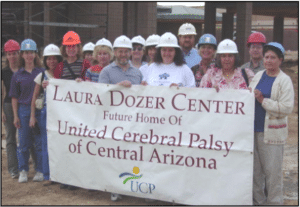
State of the Art Facility Coming Soon
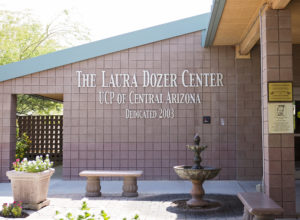
Laura Dozer Center, open for business, 2003
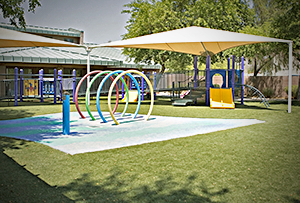
Laura Dozer Center Playground
UCP OF CENTRAL AZ- THE EARLY YEARS- OVERCOMING OBSTACLES…PART 1
After the establishment of UCP National in 1949, a small but dedicated group of parents in Phoenix formed UCP of Central Arizona in 1952. Their goal: to change Arizona’s perception and treatment of people with cerebral palsy, to create an understanding and accepting society in which their children could lead healthy, productive lives.
It wasn’t long before these parents realized that cerebral palsy wasn’t the only disability facing obstacles. UCP of Central Arizona soon expanded their scope to include disabilities of all types. With autism, sensory processing disorders, genetic disorders, orthopedic disabilities, and many more now under their umbrella, UCP of Central Arizona worked in homes across the state to provide the care and support that would raise the quality of life for children with disabilities.
As our dedicated therapists and health professionals supplied their expertise to struggling families, the nation experienced a radical shift in the treatment of people with disabilities. The 1960s and ‘70s saw a veritable civil rights movement for the disability community; the 1965 Title XIX amendment to the Social Security Act provided financial aid to people with disabilities and their families; The 1970 Developmental Disabilities Services and Facilities Construction Amendments gave the first legal definition of developmental disabilities, and offered grants for services and facilities that could help those with developmental disabilities; The Rehabilitation Act of 1973 made it illegal for any federal or public institutions receiving federal funds to discriminate on the basis of disability. Legislation protecting people with disabilities continued to snowball, culminating in the Americans with Disabilities Act of 1990.
Arizona made its own strides, too. The 1970 Senate Bill 1057 made it illegal to confine non-dangerous residents to State hospitals against their will. People with intellectual disabilities would no longer be forcefully confined to institutions built for the mentally ill, and residency fell from over 2,000 people to 300 in a few short months. The Arizona Long Term Care System was created in 1988 to provide care for adults with physical and intellectual disabilities, among many other developments.
The obstacles that had once faced those with disabilities were being broken down, creating a whole new set of hurdles to be conquered. The facility that housed UCP of Central Arizona in the later part of the last century was a storefront location in a two-story strip mall near Central and Hatcher. The next-door neighbor was a liquor store and physical therapy was provided on the small hill behind the building that could have used a “do not litter” sign. It was small. And tight. The occupational therapy room was about the size of a large living room with three dividers, making spaces for three different therapists to work at one time. As children and adults with disabilities began to realize that they were valued in our society like never before and services became more and more available, the cramped quarters of UCP were pushed to their limits. But, the most overwhelming thing about those days wasn’t the limited facilities or long, hard days – it was the feeling of passion and commitment for the purpose among the staff and the positive strides made every time an obstacle was removed in the life of another.
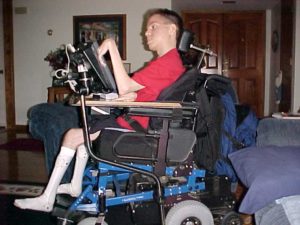
Adaptive Teachnology Equipment for People with Disabilities, 1997
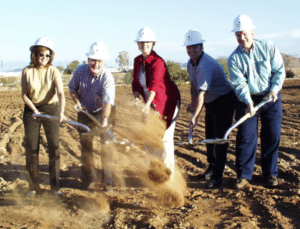
Groundbreaking of New UCP Center, 2002
70 YEARS OF PROGRESS: AN ORIGIN OF UCP
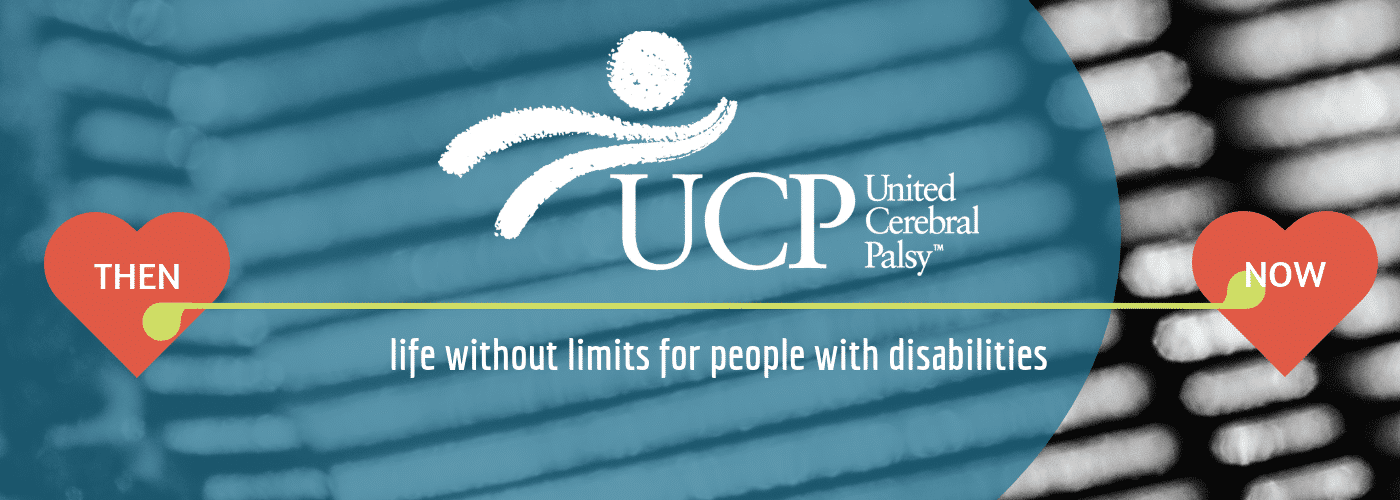
Today, UCP of Central Arizona is one of the state’s oldest and most valuable non-profits, serving almost 3,000 members across a broad range of disabilities and delays. But that didn’t happen overnight. People with disabilities have fought a long and arduous battle for equality and respect over decades, even centuries.
America, 1948. Across the country, across the world, people treat those with disabilities as second-class citizens. The average person lacks any understanding of disabilities, and as it so often does, that lack of understanding ferments into fear and prejudice. Desperate for help, parents confine their children with disabilities to draconian institutions, depriving them of social interaction and personal development. Far from helping, this only fuels the perception that people with disabilities are not capable of enjoying rich, full lives. A new “science”, called Eugenics, tells the world that only the physically strong are fit to survive. Much of society listens.
Still, many parents across the world choose love over fear and commit themselves to providing the best possible life for their child. But without resources, services, or the support of other families and health professionals, it feels like climbing a glacier in the dark. Parents feel isolated. Helpless. Alone.
No one is immune, not even the powerful. Enter two prominent New York couples, Leonard and Isabelle Goldenson & Jack and Ethel Hausman, who both want to give their own children with cerebral palsy — and others like them — the brightest future they can. But like so many others, they don’t know how. Together they take out an advertisement in New York Herald Tribune, calling out to families like them, families that want to improve the services for people with disabilities, families that refuse to watch their loved ones be relegated to the fringes of society.
The response is immediate and overwhelming. Hundreds of letters pour into the Goldenson’s and Hausman’s from parents across the nation, all searching for a community powerful enough to change the country’s misperception of disability. And so, in 1949, UCP National was born, committed to improving the well-being of people everywhere and bringing disabilities into the spotlight. Only this time, it would be on their terms.
UCP affiliates sprang up around the country, and in 1952 a group of Phoenix parents founded an Arizona affiliate known as UCP of Central Arizona. Over the last 68 years and with the help of some amazing families, staff, partner organizations, and our generous donors, UCP of Central Arizona has helped thousands of Arizona members and their families on their journey to a life without limits.
The Goldenson’s and Hausman’s legacy of committed and caring parents going to any length to provide for their family is continued to this day. UCP National works tirelessly on issues from homeownership to health care reform, inclusive education to competitive employment, and so much more. As long as there are people with disabilities, UCP will be there every step of the way, helping them thrive on their journey. And we wouldn’t have it any other way.
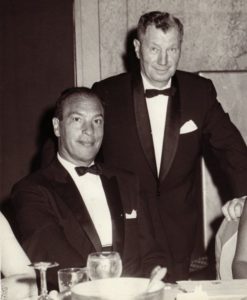
Goldeson and Hausman, circa 1968
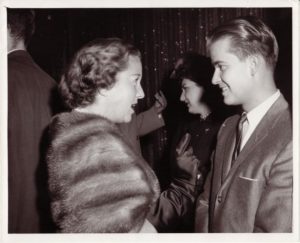
Isabelle Goldenson and Dick Clark at the UCP Telethon, circa 1958
